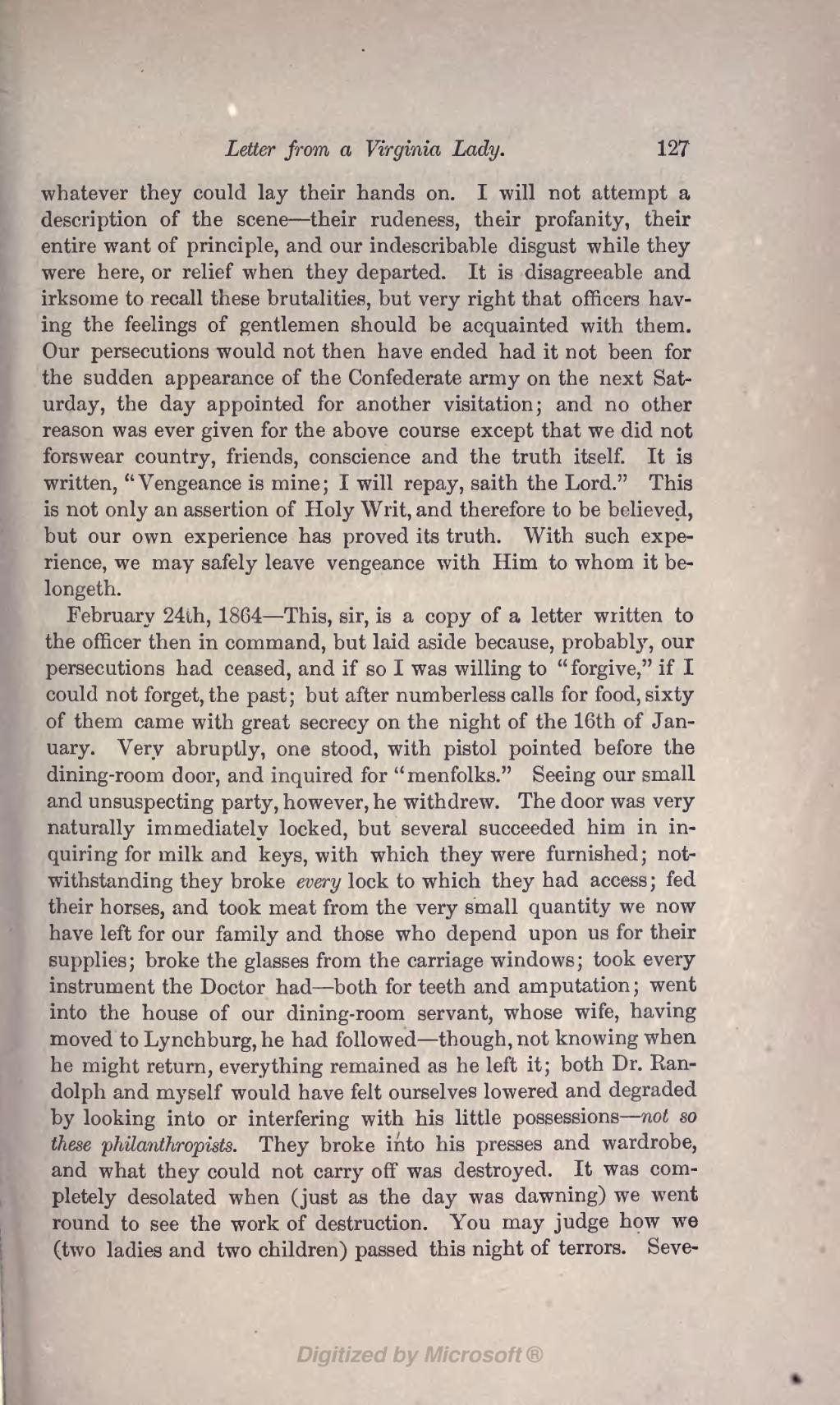whatever they could lay their hands on. I will not attempt a description of the scene—their rudeness, their profanity, their entire want of principle, and our indescribable disgust while they were here, or relief when they departed. It is disagreeable and irksome to recall these brutalities, but very right that officers having the feelings of gentlemen should be acquainted with them. Our persecutions would not then have ended had it not been for the sudden appearance of the Confederate army on the next Saturday, the day appointed for another visitation; and no other reason was ever given for the above course except that we did not forswear country, friends, conscience and the truth itself. It is written, "Vengeance is mine; I will repay, saith the Lord." This is not only an assertion of Holy Writ, and therefore to be believed, but our own experience has proved its truth. With such experience, we may safely leave vengeance with Him to whom it belongeth.
February 24th, 1864—This, sir, is a copy of a letter written to the officer then in command, but laid aside because, probably, our persecutions had ceased, and if so I was willing to "forgive," if I could not forget, the past; but after numberless calls for food, sixty of them came with great secrecy on the night of the 16th of January. Very abruptly, one stood, with pistol pointed before the dining-room door, and inquired for "menfolks." Seeing our small and unsuspecting party, however, he withdrew. The door was very naturally immediately locked, but several succeeded him in inquiring for milk and keys, with which they were furnished; notwithstanding they broke every lock to which they had access; fed their horses, and took meat from the very small quantity we now have left for our family and those who depend upon us for their supplies; broke the glasses from the carriage windows; took every instrument the Doctor had—both for teeth and amputation; went into the house of our dining-room servant, whose wife, having moved to Lynchburg, he had followed—though, not knowing when he might return, everything remained as he left it; both Dr. Randolph and myself would have felt ourselves lowered and degraded by looking into or interfering with his little possessions—not so these philanthropists. They broke into his presses and wardrobe, and what they could not carry off was destroyed. It was completely desolated when (just as the day was dawning) we went round to see the work of destruction. You may judge how we (two ladies and two children) passed this night of terrors. Seve-
